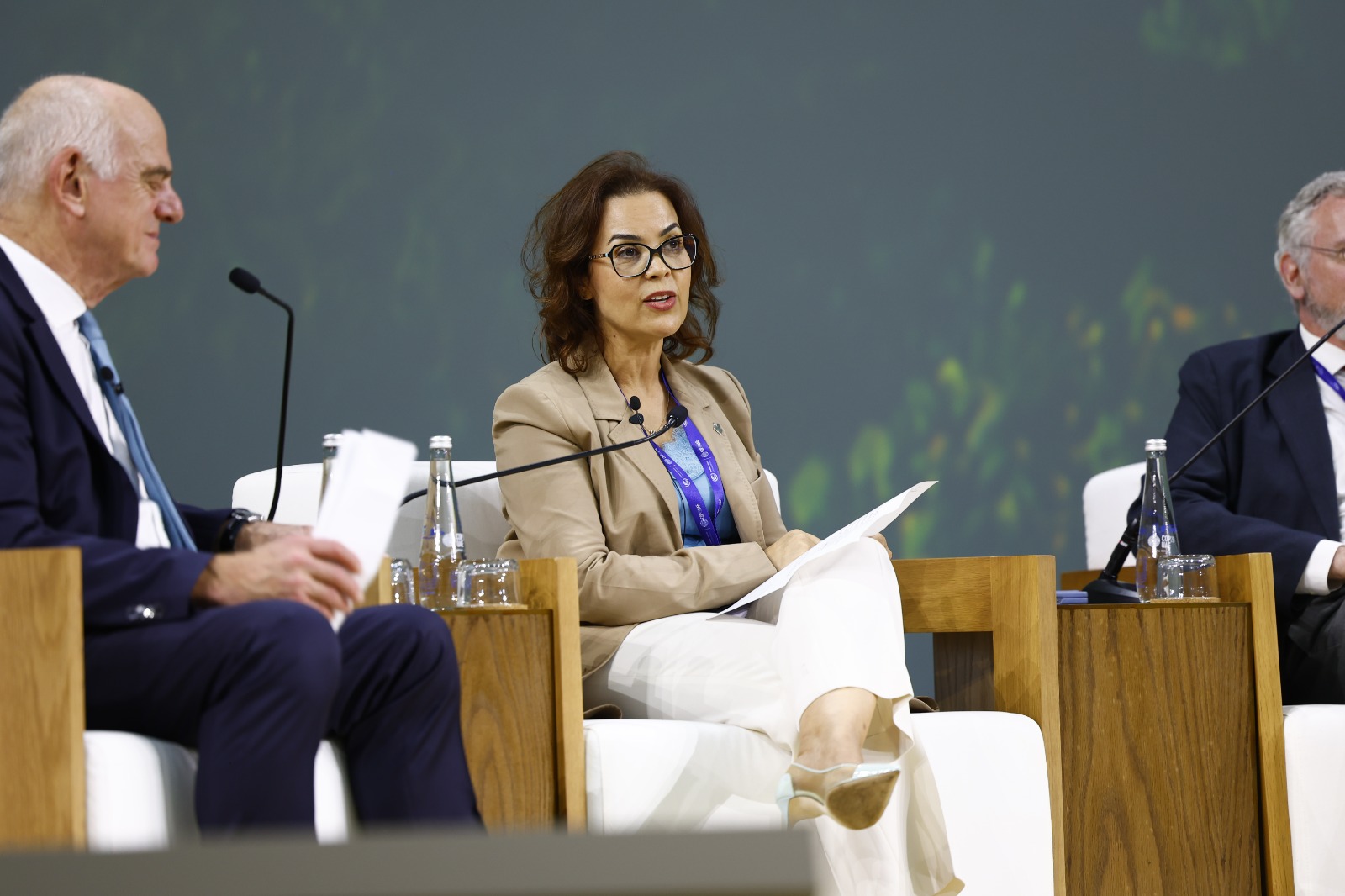
The most significant climate conference began yesterday, bringing together global leaders and experts to discuss pressing environmental challenges. We were honored to meet Dr. Ismahane Elouafi, the Executive Director of CGIAR, who shared enlightening insights on risks, issues, and innovations to create a less greenhouse gas-emitting agriculture that serves populations.
Q1. About water stress and climate change. Can you explain how these factors affect global food security?
Water stress is pushing many countries to seek innovative solutions to ensure food security for their citizens. Climate change is one of the main drivers of the current instability in food security, with high rates. Taking urgent action to remedy the situation is crucial, as it could significantly worsen. However, other factors, such as global social injustice, increasing poverty, and conflicts, also contribute to hunger worldwide. Thus, transforming global food systems is essential to addressing the climate crisis and food instability. Introducing more sustainability into our production, transportation, trade, storage, and food consumption methods can help improve global nutrition and protect people's incomes, thereby creating more excellent stability in the face of conflicts.
Q2. Food security is a significant topic at stakeholder summits. What is the current status of this discussion, and what advancements can we expect from COP 28 in the UAE, in your opinion?
Climate change and food are closely linked, with approximately 780 million people worldwide affected by hunger. We strongly encourage the inclusion of food as a clear pillar of the COP28 agenda. This is the first time food has been elevated in climate discussions, which is vital given the close connection between the two crises. However, much remains to be done globally to permanently transform the agricultural sector and achieve real change in both food and climate aspects. That is why CGIAR is committed to mobilizing billion to provide solutions to climate and food crises and meet the scale of the challenge. We have launched a new comprehensive initiative to increase investments by billion at COP28, recently announcing 0 million in new funding. For more details on how science can transform our food systems, I encourage you to visit our website.
Q3. Now let's talk about artificial intelligence in agriculture. How do you envision the future of agriculture globally with the increasing use of artificial intelligence, and how will it benefit poor countries?
Technology, including artificial intelligence, offers enormous potential for agriculture and food. Developing countries can directly adopt many technologies, allowing for a rapid leap toward innovation. Artificial intelligence can play a crucial role by providing information and advice to farmers. For example, CGIAR has developed an AI-based application capable of diagnosing diseases or pest infestations in banana plants with an accuracy of up to 90%. This application, called Tumaini, has started to change the lives of farmers in 50 countries across Asia, Africa, and South America. By ensuring that such technologies reach the hands of small farmers worldwide, we are working to guarantee their access and maximize the benefits of these advancements.
Q4. Finally, what are your network's strategies to help poor countries achieve food security in the face of climate challenges?
Climate change poses a major risk to food production and farmers' livelihoods. To maintain food systems and ensure food security, we must support vulnerable producers adapting to environmental changes. This includes adopting suitable agricultural practices, using climate-resistant varieties and strains, integrating digital tools that provide real-time climate information, and using innovative financing to support farmers facing climate emergencies. CGIAR seeks to implement these solutions to help millions of small food producers in low-income countries strengthen their resilience to increasing climate shocks.
